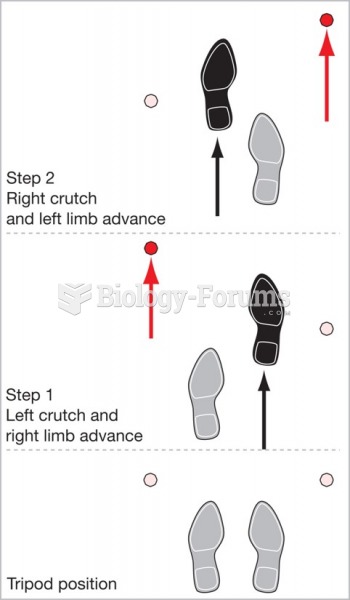This topic contains a solution. Click here to go to the answer
|
|
|
Did you know?
Patients who have been on total parenteral nutrition for more than a few days may need to have foods gradually reintroduced to give the digestive tract time to start working again.
Did you know?
It is believed that humans initially contracted crabs from gorillas about 3 million years ago from either sleeping in gorilla nests or eating the apes.
Did you know?
If you could remove all of your skin, it would weigh up to 5 pounds.
Did you know?
Medication errors are more common among seriously ill patients than with those with minor conditions.
Did you know?
The B-complex vitamins and vitamin C are not stored in the body and must be replaced each day.







